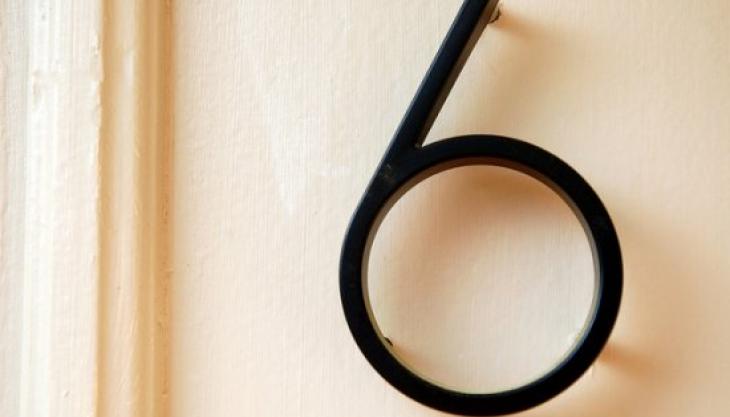6 Things to Do After You Get a Bankruptcy Discharge
Submitted by Rachel R on Wed, 12/10/2014 - 3:21pm

Six Things to Do After Bankruptcy Discharge
Image source: Flickr user Steve Snodgrass
If you were deep in debt and decided to pursue a bankruptcy, if all goes well, you'll end up with a bankruptcy discharge. With a Chapter 7, it takes about four months to get your discharge and with a Chapter 13, it will come at the end of your three to five year repayment plan. Once you have your discharge in hand, it's time to start rebuilding your credit and making the most of your fresh start. Today we'll take a look at six things you should do after you get your discharge to get – and stay – on the path to a brighter financial future.
#1 Keep a Copy of Your Bankruptcy Petition and Discharge
Once you get your bankruptcy discharge notification, be sure to keep it somewhere handy. Also, be sure to have a copy of your petition that your attorney filed along with all of the supporting schedules. This can be important if any debt collectors try to collect on debts that were discharged during bankruptcy or if items on your credit report aren't showing up properly. Keep all this paperwork on hand indefinitely.
#2 Get a Copy of Your Credit Report
The first step in improving your credit post-bankruptcy is to make sure your credit report correctly reflects your bankruptcy filing. All debts that were included in your bankruptcy filing should be noted as “discharged in bankruptcy.” You may see the same debt twice – once noted by the creditor and another if it went into collections. Be sure both show that they were discharged in bankruptcy. If you see any accounts that don't reflect properly, submit a copy of your petition and supporting schedule showing the debt was listed to the credit agencies should clear this up quickly.
#3 Start Rebuilding Your Credit
There are two prongs to improving your credit score after you get your bankruptcy discharge. The first is to get new credit – slowly and responsibly. The second is to make sure any remaining debts not discharged in bankruptcy are promptly paid. If you still have a car or house loan, make sure your payments are on time, every time. To get new credit, start with a secured credit card or reasonable new credit card offer. Use the card a little each month, but then pay in full so that your credit score improves from this new line of credit.
#4 Make Arrangements on Other Remaining Debts
Aside from your house and car, if you have other debts left over from your bankruptcy like student loans or back taxes that weren't discharged, you should tackle these right away. For taxes, contact the IRS or state revenue office and get on a payment plan or pitch a settlement offer. For student loans, apply for an affordable repayment plan like Income Based Repayment to get back on track. Be sure to keep up on whatever payment arrangements you made.
#5 Build Up an Emergency Fund
To keep yourself out of a future financial crisis, setting up an emergency fund is wise. A few thousand dollars set aside for a rainy day can make a huge difference in your financial stability. Be sure to stash your cash in a place you can't easily access with a debit card or check so that you're not tempted to spend it. This should be for bona fide emergencies only like a car repair or unexpected doctor bill, not a vacation or Christmas presents.
#6 Focus on the Future
Try to think beyond today, this week or next month and keep an eye on your long-term financial future. This means setting up a workable budget and sticking to it, paying your bills on time, controlling your spending and investing in your retirement. If you have a work 401(k), be sure to participate and take advantage of the match. If not, set up an IRA and diligently put money away each month.
One of the most frustrating and stressful things about being in debt is living paycheck to paycheck and not seeing a positive financial future. Taking these steps after a bankruptcy discharge can help you make the most of the financial fresh start that bankruptcy offers. If you're deep in debt now and are considering bankruptcy as a possible solutions, contact the law offices of John T Orcutt for a free consultation on filing North Carolina bankruptcy.
Debts Hurt! Got debt? Need help? Get started below!
Serving All of North Carolina
- Bankruptcy Attorneys Raleigh NC (North)
- Bankruptcy Attorney Fayetteville NC
- Bankruptcy Attorney Durham NC
- Bankruptcy Attorneys Wilson NC
- Bankruptcy Attorneys Greensboro NC
- Bankruptcy Attorneys Southport NC
- Bankruptcy Attorneys Wilmington NC
Bankruptcy Attorneys Raleigh NC (North)
6616 Six Forks Rd #203 Raleigh, NC 27615 North Carolina
Tel: (919) 847-9750

Bankruptcy Attorney Fayetteville NC
2711 Breezewood Ave Fayetteville, NC 28303 North Carolina
Tel: (910) 323-2972

Bankruptcy Attorney Durham NC
1738 Hillandale Rd Suite D Durham, NC 27705 North Carolina
Tel: (919) 286-1695


Bankruptcy Attorneys Greensboro NC
2100 W Cornwallis Dr. STE O Greensboro, NC 27408 North Carolina
Tel: (336) 542-5993

Bankruptcy Attorneys Southport NC
116 N Howe St. Suite A, Southport, NC 28461 North Carolina
Tel: (910) 218-8682

Bankruptcy Attorneys Wilmington NC
116 N. Howe Street, Suite A Southport, NC 28461 North Carolina
Tel: (910) 447-2987
